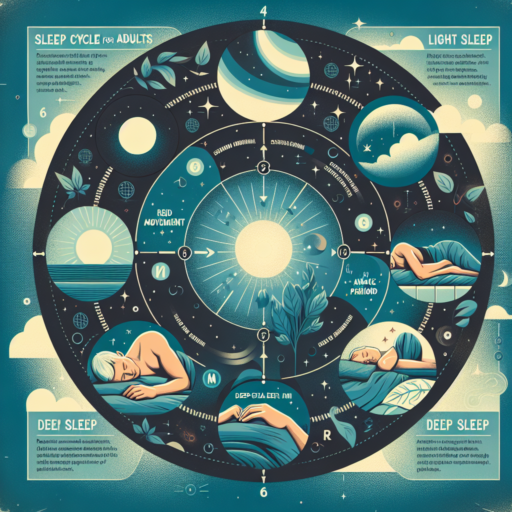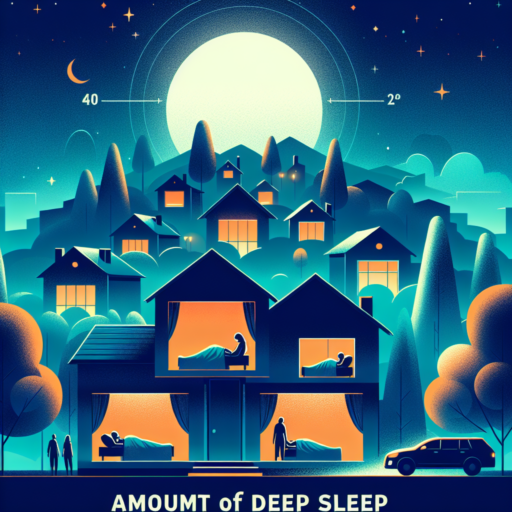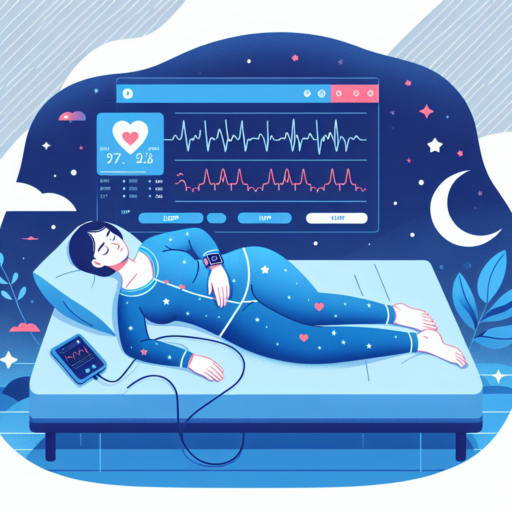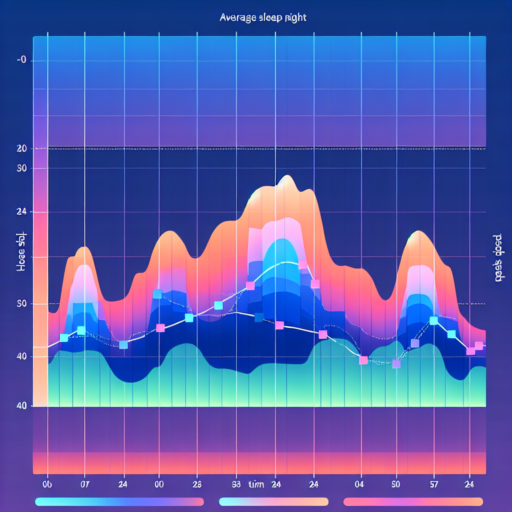What is a healthy sleep cycle for adults?
Understanding the structure of a healthy sleep cycle is key in maintaining physical, mental, and emotional wellness. For adults, a healthy sleep cycle typically involves going through several stages of sleep, from light to deep sleep, and includes the critical period of Rapid Eye Movement (REM) sleep. This cycle is repeated several times throughout the night, with each iteration lasting approximately 90 to 110 minutes.
Duration of Sleep: Experts generally recommend that adults aim for 7 to 9 hours of sleep per night. However, the quality of sleep within these hours is just as crucial as the quantity. Achieving a consistent pattern where one goes through the full sleep cycle multiple times helps in ensuring that the body receives adequate rest and recovery.
The impact of a healthy sleep cycle extends beyond just feeling rested. It plays a pivotal role in memory formation, emotional regulation, and physical health maintenance, including the efficiency of the immune system, hormone regulation, and the body’s healing processes. Hence, understanding and striving for a healthy sleep cycle can significantly enhance an adult’s overall quality of life and long-term health..
No se han encontrado productos.
How long are sleep cycles in adults?
Understanding the duration of sleep cycles in adults is paramount for appreciating the complexities of sleep health. Typically, an adult sleep cycle lasts about 90 to 110 minutes, encompassing various stages, including REM (Rapid Eye Movement) and NREM (Non-Rapid Eye Movement) sleep. Each of these stages plays a crucial role in overall health and well-being.
During the initial stages of the NREM phase, which takes up the bulk of the sleep cycle, the body slowly transitions from wakefulness into deep sleep. This part of the cycle is essential for physical recovery and growth, as it’s when the body repairs muscle, consolidates memory, and releases growth hormones. The deep sleep phase, which typically occurs in the first half of the night, is especially crucial for feeling rested.
The REM stage, on the other hand, occurs approximately 90 minutes after falling asleep. During REM sleep, the brain becomes more active, fostering dreams and emotional processing. This stage of the sleep cycle is vital for cognitive functions such as learning, memory consolidation, and mood regulation. With each subsequent cycle, the duration of REM sleep increases, becoming longer towards the morning.
What is the average sleep cycle by age?
Understanding the average sleep cycle by age is essential as it helps identify the sleep needs of different age groups. Sleep cycles, which are part of the circadian rhythm, change significantly as we age, impacting the quantity and quality of sleep we require for optimal health.
Infants and Toddlers
Infants and toddlers typically require much more sleep than older children and adults. Newborns, aged 0-3 months, may sleep between 14 to 17 hours a day, divided over several sleep periods. As they grow, toddlers (aged 1-2 years) need approximately 11 to 14 hours of sleep, including naps during the day. This high demand for sleep supports their rapid mental and physical development during these early years.
Children and Teenagers
As children enter school age, aged 6-13 years, their sleep requirement changes to about 9-11 hours a night. Entering adolescence, teenagers (aged 14-17 years) need about 8-10 hours of sleep. However, due to social, academic, and sometimes biological factors, many in this age group struggle to get the required amount of sleep, impacting their overall health and cognitive functions.
Adults and Seniors
For adults, aged 18-64 years, the recommended sleep duration falls to 7-9 hours per night. This range remains optimal for supporting healthy brain function and physical health. Seniors, aged 65 years and above, may require slightly less, about 7-8 hours. However, they might experience changes in sleep architecture, meaning they spend less time in deep sleep stages. Understanding these changes can aid in addressing sleep-related issues appropriately.
Which is better, REM or deep sleep?
Determining which stage of sleep, REM (Rapid Eye Movement) or deep sleep, carries more benefits can greatly enhance our understanding of sleep’s impact on our health. REM sleep is known for being the stage wherein most dreaming occurs, and it plays a crucial role in the processes related to learning, memory consolidation, and emotional regulation. On the other hand, deep sleep, or slow-wave sleep, is pivotal for physical recovery, cellular repair, and growth hormone release, making it essential for physical health and rejuvenation.
Importance of REM Sleep
During REM sleep, the brain’s activity levels are akin to those during wakefulness, which is why this stage is so associated with vivid dreams. This period is crucial for cognitive functions such as memory consolidation, problem-solving, and creativity. Additionally, REM sleep is linked to emotional well-being, with research suggesting it helps process emotional experiences, potentially contributing to reduced stress and anxiety levels.
Benefits of Deep Sleep
Deep sleep is the most restorative sleep stage, during which your body repairs muscles, organs, and cells, bolstering the immune system and energy levels for the next day. This stage is also when the body regulates growth and stress hormones, detoxifies the brain, and stores energy for the next day. Therefore, deep sleep is essential for physical health, aiding in everything from muscle growth and repair to immune function and metabolism.
It’s not just about choosing between REM or deep sleep; both are integral components of a healthy sleep cycle, each with their unique benefits that contribute to overall well-being. Understanding the importance of each can help in aiming for a balanced sleep cycle that supports both mental and physical health.




